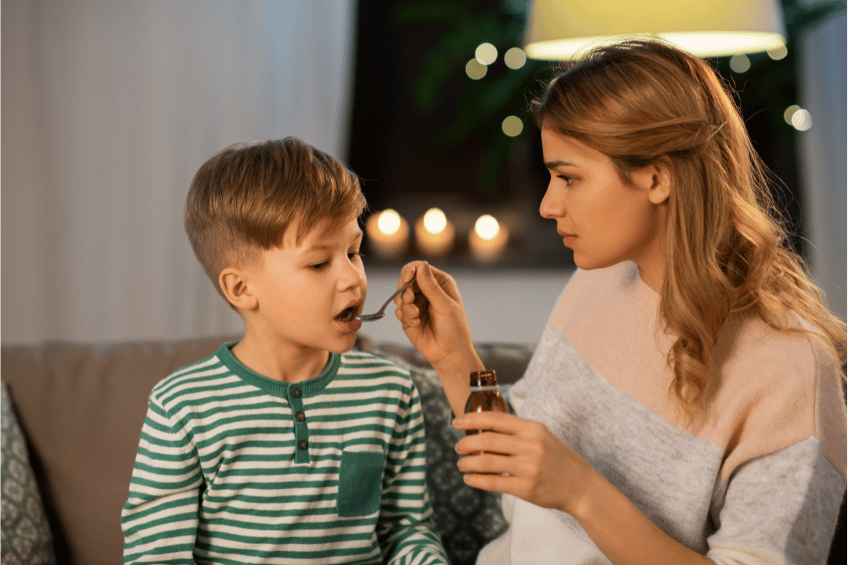How to treat laryngitis?
Treatment for laryngitis is based on the nature of the problem. Symptoms usually disappear within 7 to 10 days. In most cases, it is a mild viral illness.
Voice rest is important to help improve symptoms.
If a bacterial infection is involved, antibiotics may be prescribed.
In some cases, corticosteroids can be proposed.
If laryngitis is chronic, removing the cause (smoking, for example) helps prevent recurrences.
Also, inhaling humidified air enhances moisture of the upper airway and helps remove secretions and exudates.
In children, fever should always be treated. To lower their temperature, put a wet towel on the child’s forehead, undress them, lower the temperature of the room, also give them something to drink regularly.
If after a few hours there is no improvement and the signs continue to be worrying (painful to drink and swallow, breathing difficulties…) it is best to seek hospitalization in order to avoid any potentially fatal complications.

How to prevent laryngitis?
- Wash your hands frequently and teach your child to wash their own hands properly and frequently.
- Make sure that our home is not overheated (maximum 66-67°F / 19°C) and the air is not too dry.
- Ventilate regularly.
- Do not smoke.
- Avoid close contact with infected people and do not exchange toys and pacifiers between children when one of them is sick.
- Check that you (and your child) are up to date with your vaccinations, especially against diphtheria, mumps, rubella, measles, and haemophilus influenzae.
- Avoid irritants or excessively straining the voice.
- Do not shake hands and generally avoid close contact if there is any suspicion of a cold or infection.
- Limit alcohol intake.
- Treat gastroesophageal reflux disease if you have it.
- Treat respiratory allergies appropriately.
- Resist the urge to regularly clear your throat – it creates abnormal vibrations that trigger irritation and swelling of the vocal cords.
- Stay hydrated by drinking plenty of water during the day.
